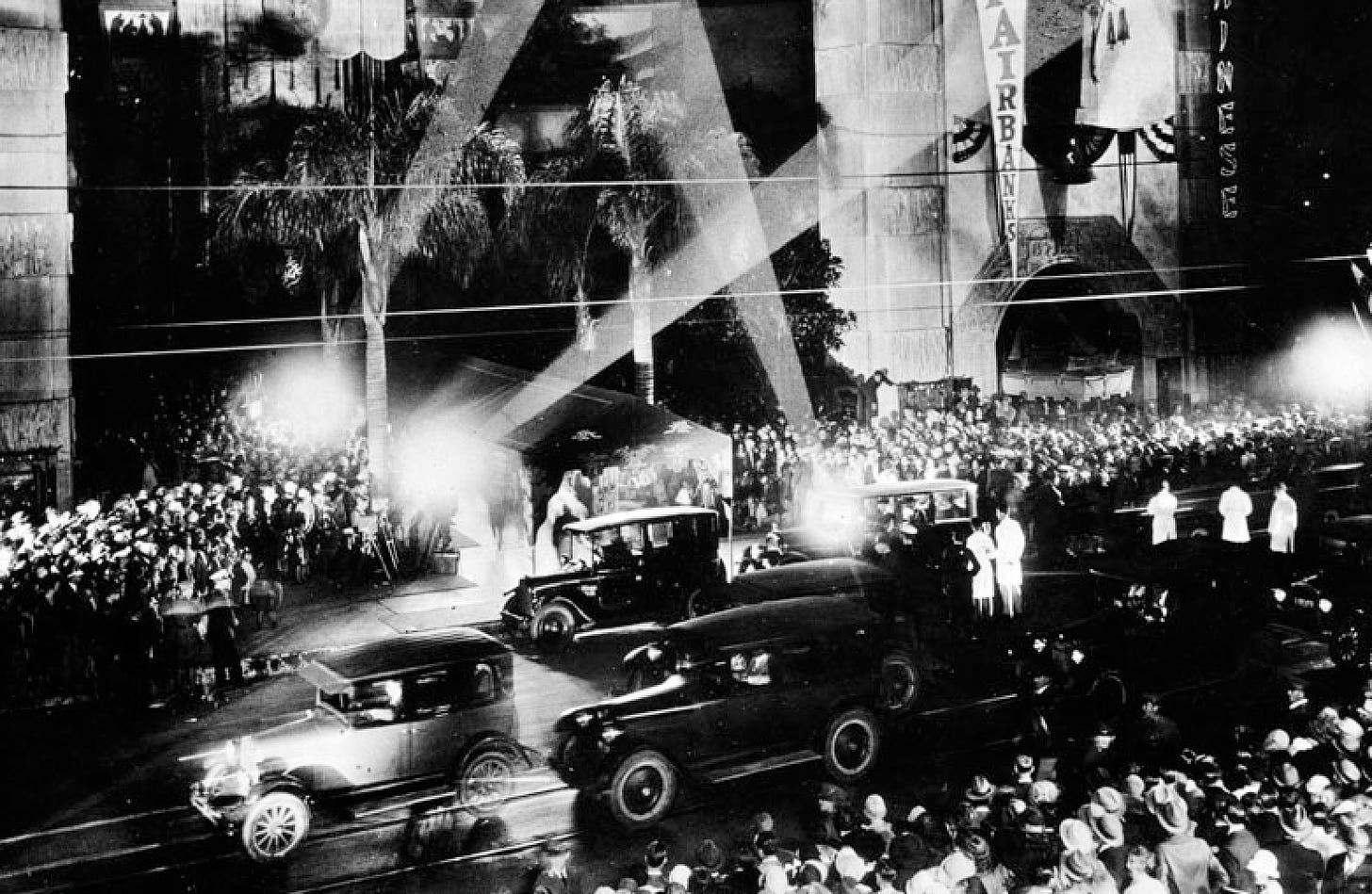A little Hollywood history
New column for The Ankler. Plus: America's deadliest election and the murder of Mia Zapata
Hey gang. Quick programming note: I’m doing a new column for The Ankler, the must-read Hollywood publication—created by the great Richard Rushfield—that is one of Substack’s bigger fish. If you’re unfamiliar, you can remedy that by reading the Vanity Fair profile I did last year, which is obviously what landed me this gig. KIDDING! What actually happened is that I was catching up with Ankler boss Janice Min a few months ago when she mentioned in passing that they’d kicked around the idea of adding a Hollywood nostalgia newsletter to their growing roster of franchises. I threw up my hand, started workshopping ideas with executive editor David Lidsky and — voila!
The column is called Ankler Rewind and the plan is for this to be a bi-weekly thing. If you’re into the type of storytelling that I showcase here at A Little History, I suspect you’ll dig it. We set sail last Saturday, with a suspenseful tick tock of how America absorbed the news of Marilyn Monroe’s death in real time through a torrent of sensational press coverage. It’s a narrative filled with colorful characters/anecdotes that time has obscured. And, frankly, who doesn’t love a good Marilyn yarn? Check it out here, and subscribe to The Ankler to get more of the same delivered straight to your inbox. (I’m working on next Saturday’s installment as we speak.)
While I have you, allow me to mention a couple other recent bylines? For AirMail, I reviewed the new Dana Bash book about Louisiana’s gubernatorial contest of 1872:
The resultant violence cemented its place in history as America’s deadliest election, a distinction captured in the title of a new book by Dana Bash, CNN’s chief political correspondent. Her meticulous re-creation of the confrontation, written with the prolific author David Fisher, couldn’t be more well timed. … The book follows a chain reaction that flowed from the civic chaos of November 1872, set against a backdrop of racism, states’ rights, and Southern resistance to Reconstruction. … If nothing else, it will remind you that American Democracy has fought for its life before—and, at least for now, it’s still here.
And for Alta, I revisited the 1993 murder of Mia Zapata:
In death, Zapata attained a level of recognition robbed from her in life. I first learned of her as a teenager swept up in the indie world of the mid-1990s, when you would see ads in Spin for ¡Viva Zapata!, the second album from Seattle’s 7 Year Bitch, or the Zapata-inspired Epic Records benefit compilation Home Alive: The Art of Self Defense, featuring artists like Joan Jett, Nirvana, Pearl Jam, Jim Carroll, Jello Biafra, Exene Cervenka, and Lydia Lunch. … Her story has endured as fodder for the true-crime industrial complex, revisited every so often on lurid podcasts or shows like Forensic Files. Now, more than 30 years after her death, one of Zapata’s friends and former bandmates is reclaiming her narrative.
That’s all for now. More from me soon. In the meantime, I’ll be listening to the predictably incredible new record from Nick Cave & the Bad Seeds:
Bon week-end!





